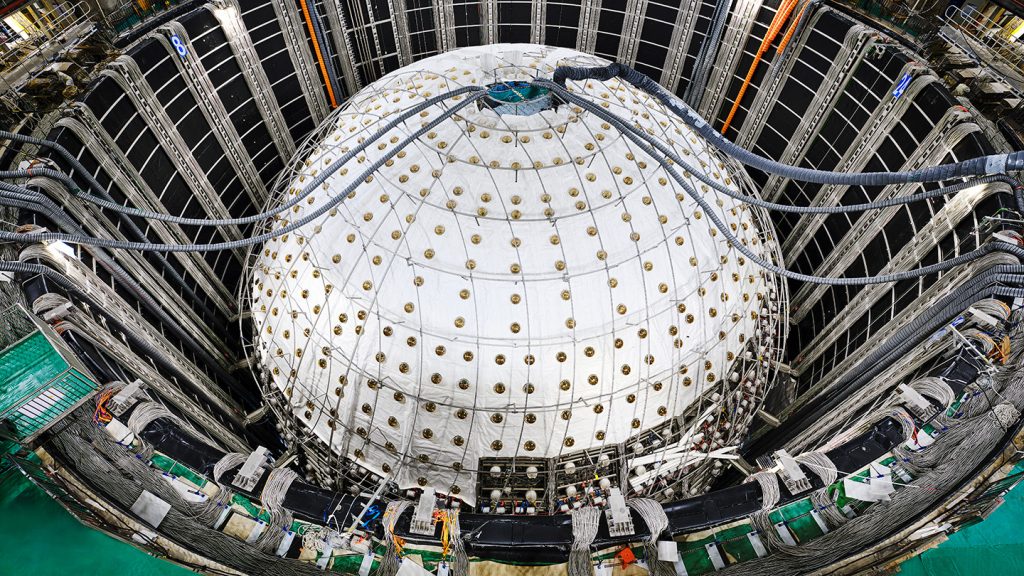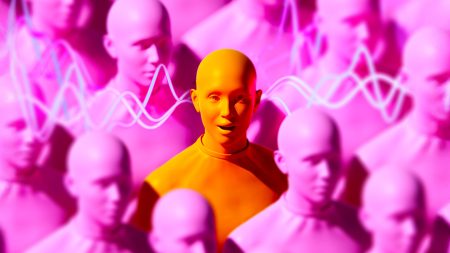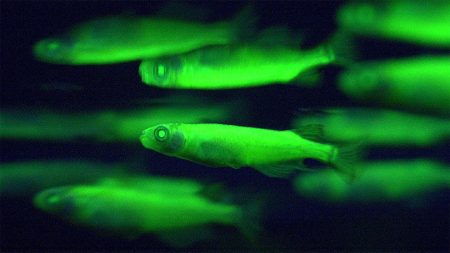Physicists are finalizing the Jiangmen Underground Neutrino Observatory (JUNO), which will study neutrinos and their antiparticles, antineutrinos. JUNO is set to start collecting data in the summer of 2025 to determine which type of neutrino is the heaviest. This underground detector, located in China, will house a large acrylic sphere filled with liquid scintillator that emits light when antineutrinos interact with protons. Surrounding the sphere, water will help filter out particles that may mimic antineutrinos.
The heart of JUNO is a large acrylic sphere filled with liquid scintillator, surrounded by water to filter out unwanted particles. The detector will use photomultiplier tubes to spot antineutrino-induced signals. JUNO is expected to start collecting data in 2025 and will focus on studying antineutrinos generated by nearby nuclear power plants. By analyzing these particles, scientists hope to gain a better understanding of neutrinos and their properties.
The JUNO detector is expected to be the largest of its kind in the world, located 700 meters underground in China. The detector will utilize liquid scintillator and photomultiplier tubes to detect antineutrinos. Water surrounding the sphere will help filter out unwanted particles and mimic antineutrinos. The goal of the project is to determine which type of neutrino is the heaviest and gain a better understanding of the elusive particles.
Physicists will study neutrinos and their antiparticles using the JUNO detector, which will be the largest of its kind when operational in 2025. Scientists will focus on detecting antineutrinos released by nearby nuclear power plants to gather information about the elusive particles that have puzzled researchers for decades. By utilizing liquid scintillator and photomultiplier tubes, JUNO aims to shed light on the properties of neutrinos and provide valuable insights into their behavior.
JUNO, the Jiangmen Underground Neutrino Observatory, is a groundbreaking project that aims to study neutrinos and their antiparticles. Located 700 meters underground in China, the detector will be filled with liquid scintillator and surrounded by water to filter out unwanted particles. With the help of photomultiplier tubes, scientists will focus on detecting antineutrinos released by nearby nuclear power plants to unravel the mysteries of these elusive particles. JUNO is expected to provide valuable insights into the properties and behavior of neutrinos.
In conclusion, physicists are making final preparations for the JUNO detector, which will study neutrinos and their antiparticles in an underground facility in China. The massive detector aims to determine which type of neutrino is the heaviest and provide valuable insights into the properties of these elusive particles. By analyzing antineutrinos released by nearby nuclear power plants, scientists hope to unlock the secrets of neutrinos and enhance our understanding of fundamental particles in the universe. JUNO represents a significant step forward in the field of particle physics and will contribute to our knowledge of these mysterious subatomic particles.















